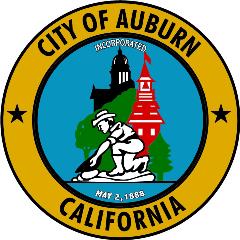by
Traci Newell - Gold Country Media
| Mar 23, 2023

According to Auburn’s newest Pavement Management Program, which surveyed every single street in the city limits, local roads averaged a “good” score of 66 on the pavement condition index.
Michael Karoly, a civil engineer from city-contracted Coastland Civil Engineering, presented the Pavement Management Program report to the Auburn City Council last week.
A Pavement Management Program is a decision-making tool which will allow the city to allocate funds for road repair and resurfacing in a cost-effective manner, Karoly said. The report contains an inventory of streets and pavement data and holds inspection records for each street segment.
Each street segment in town was rated on a scale of 1 to 100 in a pavement condition index (PCI). Coastland officials used a computer program called StreetSaver to calculate the average PCI of local roads.
“In the past, staff has done pave management and used a spreadsheet-based system,” Karoly said. “This is a more rigorous program with more flexibility and potential.”
The data is used to analyze maintenance scenarios, develop maintenance projects as funding becomes available, verify treatment to be applied to segments, assist in making sure pavement projects are appropriate and can be used to apply for funding.
Karoly said PCI ranges from excellent at the beginning of a road’s lifespan to failed (nearly gravel). The city’s average of 66 is considered good, as the index Karoly uses states any road with a 50 or higher rating is considered fair to excellent.
“Auburn’s rating is still pretty solid but starting to slide into worse conditions,” Karoly said. “If the city did nothing to the streets for 10 years, the average PCI would deteriorate to 46.”
Pavement Management Program data includes the types of streets – arterial, collector and residential – which is taken into account in helping calculate when each street needs maintenance or repair.
Karoly’s presentation outlined five scenarios for how the city might consider proceeding with the data in the report. The scenarios include:
· Do nothing
· Spend $1.1 million a year (current budget allotment)
· Increase budget to $2 million a year
· Achieve/maintain a PCI of 70
· Increase PCI by 10
Karoly showed what a possible scenario of roadwork might be based on of the needs that are calculated by the data in the computer system. The system selected based on needs, and the road conditions will be updated by city staff so the data is accurate and effective.
Council members were pleased the city could utilize this updated data on road conditions.
“I really appreciate having this data,” Councilwoman Alice Dowdin Calvillo said. “It is incredibly important for us to have this, as it will help us establish our priorities going forward.”
Councilwoman Rachel Radell-Harris asked if there was an industry standard PCI the city should be shooting for? Public Works Manager Mengil Deane pointed out the city’s average PCI is in line with the state average.
“I would love to see our city at about 70, but the reality is maybe a 70 right now doesn’t make the most sense for us,” Deane said. “Maybe just shooting to increase our PCI one or two points over the next two years would make the most benefit.”
Radell-Harris agreed with Deane and said she is most interested in seeing a “small, achievable goal.”
Deane said his staff is working on a plan to bring back to council on how to use this data in future road repair projects.
Source:
Traci Newell - Gold Country Media